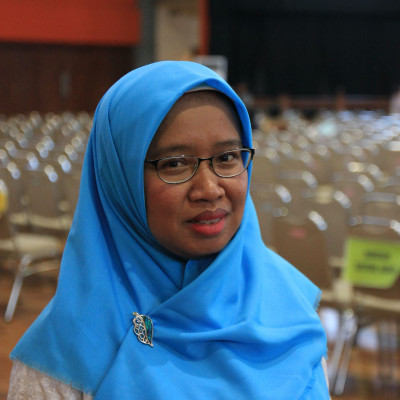Sessions / Plenary
The Implementation of Extensive Reading: A Tale of Two Universities in Indonesia #3101
Extensive reading plays a critical role in creating an environment where teachers can nurture students’ motivation to love reading and in creating a safe haven for those who love reading. A closer look of two universities in East Java, Universitas Negeri Surabaya (UNESA) and Universitas Negeri Malang (UM) shows that they resemble in several ways. Both universities used to be teacher training institutes, have ER course in the curriculum, targeted freshmen, and subscribed to Xreading to support ER. This talk discusses the implementation of ER as a co-curricular program in UNESA and a curricular one in UM as well as the benefits and drawbacks of the different policies. This talk also discusses the implications of the ER programs in the two universities. Finally, the talk will be summarised with the suggestions for future studies.
Extensive reading, grammar, and the language teacher #3215
Much has been said and written about the benefits of ER for language learning, and vocabulary gains through ER have often been investigated. Vocabulary knowledge is obviously important; it is, for example, regarded as the single greatest predictor of comprehension. Vocabulary is also essential for communication for, as was said fifty years ago: “while without grammar very little can be conveyed, without vocabulary nothing can be conveyed”. Yet, while vocabulary gains have received much attention, learning grammar through ER has been largely overlooked. In this talk, I want to focus on the problems that unfamiliar grammatical constructions can cause in ER, and the grammar learning that is possible from ER. I will be doing this with examples from my own experience as a French language learner (not that you will need to know French to understand the examples!). After considering the extent to which grammar learning is possible, I will then discuss how the language teacher and other forms of instruction can facilitate this learning. The talk will suggest gaps in our current knowledge and so will conclude with some thoughts about future research directions.
Why and how language learners should practice ER/EL – Tips to succeed in an ER/EL program #3216
Permission to Record
The positive effects of Extensive Reading/Listening on language learners have been recognized and more and more institutions have been implementing ER/EL in many countries around the world. Meanwhile, some schools, which had once shown great success with their students’ improvement of their language proficiency, are now not as enthusiastic as before or have even reverted to their previous teaching methods, for various reasons. First, this presentation will explain why ER/EL is important for language learners. Second, it will provide some reasons why many schools are not implementing ER/EL. Then, some demotivating factors for learners which keep them from ER/EL will be provided. Next, useful tips, which motivate learners to keep reading and listening extensively, will be introduced by presenting the results of practical studies. Finally, the presentation will propose teachers’ roles: what they should do or should not do to succeed with an ER/EL program.



